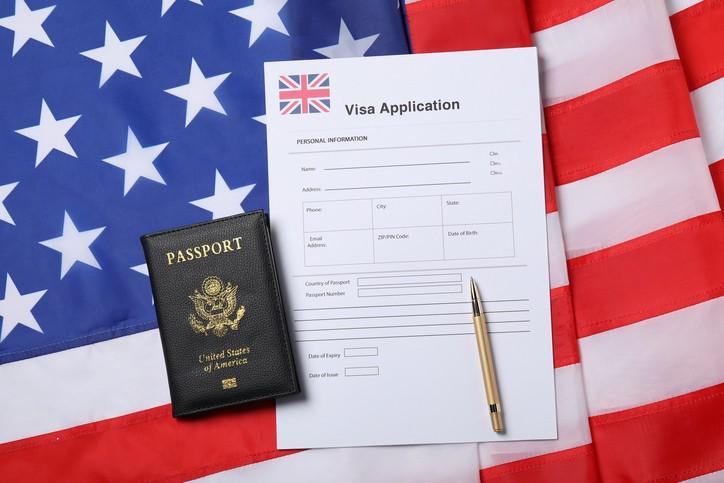Overstaying your visa can lead to serious legal consequences that may significantly impact your ability to stay in or return to the United States. Once your visa expires, you accumulate unlawful presence, which can result in bars from reentry for three or ten years, depending on the length of the overstay. Additionally, overstayers risk being placed in removal proceedings and may face deportation, making it much harder to adjust their status or pursue legal pathways to permanent residency.

The long-term ramifications can complicate future immigration benefits and limit opportunities for relief, so it’s essential to address visa status issues promptly and seek legal advice when necessary.
At Kasturi Law, LLC, our Illinois immigration and nationality law attorney and law firm founder, Shobhana Kasturi, has over 27 years of legal experience and a decade of experience representing individuals and families throughout their immigration journeys.
Here, we discuss some potential legal options and considerations for individuals who have overstayed their visa but are seeking to adjust their status in the United States.
Adjustment of Status Options for Individuals Who Have Overstayed Their Visa
Understanding your eligibility for adjustment of status after overstaying a visa is crucial because it determines your legal options for staying in the U.S. without facing deportation or long-term bars from reentry.
Not all overstayers qualify for adjustment, and eligibility depends on factors such as family ties to U.S. citizens, employment-based petitions, or humanitarian protections like VAWA or U visas.
- Immediate Relatives of U.S. Citizens
Overstays are typically forgiven for immediate relatives (spouse, parent, or unmarried child under 21) of U.S. citizens. They can apply for adjustment of status (AOS) while remaining in the U.S. without leaving the country.
These individuals can file Form I-485 (Application to Register Permanent Residence or Adjust Status) and the I-130 Petition for Alien Relative. No unlawful presence waiver is usually required for immediate relatives.
- Employment-Based Adjustment of Status
Overstaying a visa generally bars individuals from adjusting status through employment-based immigration unless the individual is eligible under special provisions, such as the 245(i) provision. Applicants under 245(i) must pay a penalty fee and meet other conditions to adjust their status.
- Applying for a Waiver of Inadmissibility (I-601A Waiver)
If the overstayer is married to a U.S. citizen or lawful permanent resident and needs to leave the U.S. to complete their consular processing, they can apply for a provisional unlawful presence waiver (Form I-601A) to avoid a lengthy bar from reentry.
The waiver is typically granted if the applicant can demonstrate that their absence would cause extreme hardship to their U.S. citizen, permanent resident spouse, or parent.
- Adjustment of Status for VAWA Petitioners
Victims of domestic violence who qualify for protection under the Violence Against Women Act (VAWA) can adjust their status, even if they have overstayed their visa. This applies to spouses, children, and parents of U.S. citizens or lawful permanent residents who have experienced abuse.
Individuals who qualify for a U visa (victims of crime) or T visa (victims of trafficking) may also be able to adjust their status, regardless of visa overstay, once specific requirements are met.
Overstayers who qualify for asylum can apply for adjustment of status after being granted asylum and meeting the one-year requirement for applying for a green card.
- Deferred Action for Childhood Arrivals (DACA)
Those granted DACA status due to childhood entry into the U.S. may seek lawful permanent resident status in specific situations, such as marriage to a U.S. citizen. However, DACA recipients with a visa overstay have more limited options than other categories.
Consulting with an Immigration Attorney
Given the complexity of U.S. immigration law and the severe consequences of visa overstays, individuals seeking adjustment of status after overstaying should consult with our experienced immigration attorney to determine their specific options.
If none of these options apply, overstayers may have to depart voluntarily or risk being placed into removal proceedings. However, seeking legal counsel can help explore available defenses or waivers to avoid deportation.
Contact Our Immigration Attorney Today For a Consultation
Contact our immigration law firm today to schedule a consultation that suits your needs. Whether you prefer an in-person meeting, a phone call, or a Zoom session, we are here to accommodate you. You can even schedule a consultation directly using our online calendar, choosing between 30-minute or 60-minute timeframes. We value your time and want to ensure that your immigration questions receive the attention they deserve, helping you move forward confidently.
Related Links:


